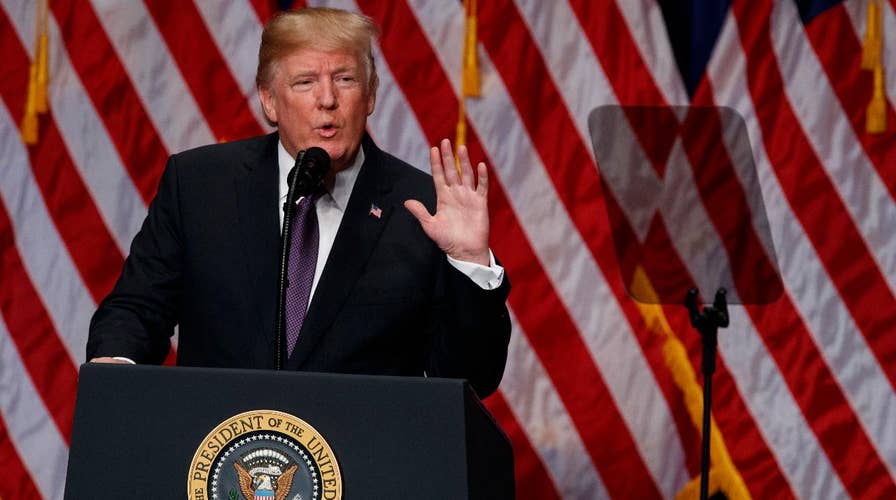Trump's new national security plan: Four key themes
President Donald Trump unveiled his national security strategy. Here’s a look at four national interest
On Monday, all foreign policy nerds the world over are bulking up on the Trump Administration’s shiny new national security strategy, or NSS.
The strategy, to be fair, has something for almost everyone to like. From declaring Russia and China all-out competitors, or revisionist powers, who want to bend the international order to their liking, to taking on unfair trade practices to dumping silly ideas like climate change being a national security threat, Trump-style conservatives will no doubt be pleased.
But all is not well in grand strategy land.
While the NSS has some clear problems—for one, declaring China and Russia the enemy when the administration needs their help on North Korea, the biggest of all foreign policy challenges—this administration has a much bigger problem to tackle: like sticking to the national security strategies they declare in the first place. In fact, it seems an open question if President Trump or his national security staff will follow this strategy beyond the initial rollout.
Clearly no national security strategy can work if there is no general agreement on what the policy is in the first place.
For sure, we can all debate the merits of this national security strategy, but one thing matters above all else: members of Team Trump all must adopt and support the same strategy for it to stand any chance of success. And if recent history is any guide, well, we are due for some problems in the weeks and months to come.
The Administration’s recent declarations and retractions on North Korea—just last week alone—could serve as the ultimate example of what an undisciplined foreign policy messaging strategy will create, which is chaos, and all the smart national security strategies in the world can’t fix that.
Due to some clear unforced errors, Trump’s North Korea policy completely fell apart. Secretary of State Rex Tillerson boldly offered unconditional talks to Pyongyang—surely the right course of action—to have not only the White House but National Security Advisor H.R. McMaster and Tillerson’s own communications staff walk it all back, which was nothing short of a confusing display of clear foreign policy failure.
Tillerson, just a few days later, would have to walk back his own remarks. In a speech to the UN Security Council, the secretary explained that North Korea must “earn its way back” to talks. Tillerson, having had his own initiatives reversed now on several occasions, now has zero credibility left and should never have delivered such an embarrassing address.
Clearly no national security strategy can work if there is no general agreement on what the policy is in the first place—or if people simply won’t follow it. And with North Korea likely reading every single policy pronouncement, wondering if this administration is on a path to war, such unforced errors can be dangerous to say the least.
I would argue Team Trump desperately needs to make sure all of its foreign policy principals are on the same page, agrees with the strategies being but forward, and crafts a unified plan of action with talking points to match. If not, the administration’s months of hard work crafting such documents will end up being a total waste of time. And no one wants to see that happen.





















